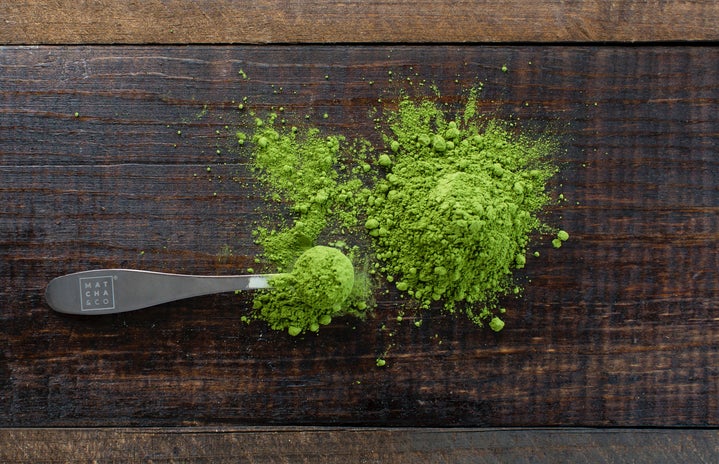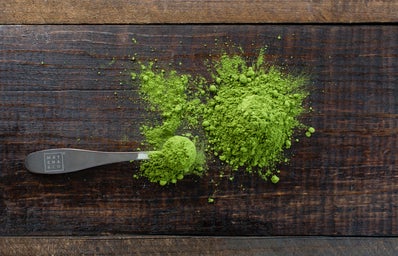To quote Lorelai Gilmore “coffee, coffee, coffee!” While there’s nothing like that first sip of hot coffee in the morning, as a sleep deprived University student I often find myself needing a late morning sip, an afternoon sip …perhaps even an evening sip. If you’re like me and you give into the cravings, you may find yourself anxiously shaking in front of your laptop, dehydrated, and unable to get the zap you need to analyze 18th century moral philosophy. As a coffee connoisseur, I generally feel awake after my first cup, but start to run into problems if I reach for a second. Don’t worry, I am not here to tell you to give up your coffee intake for celery juice and a 5k; I’m not a monster, enjoy your morning coffee. But after one too many shaky afternoons, and numerous trial and error experiments with other caffeinated beverages (it’s a no to red bull sorry), I’ve found that matcha may just be the key to making it through the day.
Our hero enters
Matcha, a traditional beverage in Japanese tea ceremonies, can now be purchased at local coffee shops for your drinking pleasure. Matcha comes from the camellia sinensis tea plant, which is the origin plant for many types of green tea. Unlike regular green tea, made from water infused tea leaves, matcha is brewed green tea, made from the grinds of baby tea leaves and whisked together with hot water or milk.
Why not just drink green tea then? Consuming the leaves whole allows for absorption of all the plant’s nutrients, and more importantly, all of the caffeine.
Matcha, while caffeinated, contains the amino acid L-theanine which is a nootropic – a cognitive enhancer – and has the ability to reduce mental fatigue and stress. When combined with caffeine, L-theanine is able to soften the edge, and allow for a calm and relaxed alertness. Coffee on the other hand releases caffeine all in one blow, which is why a rush is felt upon impact and why high intakes of coffee can leave us jittery and lethargic. But hey, sometimes we’re chaotic neutral and need that afternoon mania – no judgment.
Matcha benefits
Matcha tea plants are typically covered with shade around 20-30 days prior to harvesting to avoid excessive sunlight. This method allows plants to produce higher amounts of amino acids and bioactive compounds such as theanine and chlorophyll which contributes to the unique taste and the characteristic vibrant green colour of the drink. The majority of the health benefits stem from matcha’s robust range of natural antioxidants, including catechins, caffeine, phenolic acids, and vitamin C. Several studies have shown correlations between these chemical components and anti-carcinogenic and anti-inflammatory activity, as well as enhanced cardioprotection, cognitive function and carbohydrate metabolism.
The Take Away
While I don’t necessarily subscribe to the wellness industry promoting matcha as the drink that burns fat and cures cancer, the culture and research surrounding the beverage suggests that matcha, in general, will make you feel good. Of course personal tastes, and bioactivity differ, so take into consideration what’s right for your body.
If you find yourself struggling with your coffee intake and are looking for a change up, why not try matcha?


